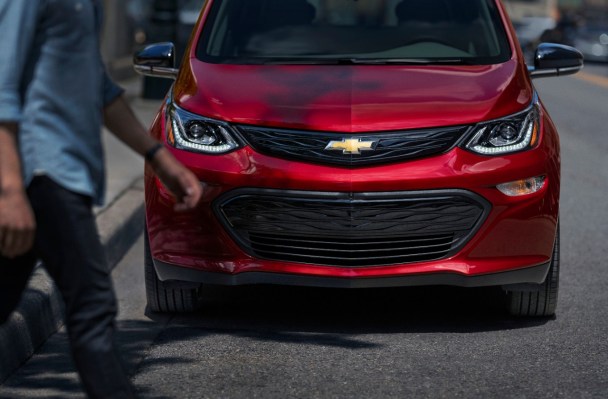Battery fires are bad. Just ask LG, GM, Tesla, Volkswagen or any of the hundreds of people whose e-bikes have caught fire. While fires caused by EVs are a relative rarity compared with fossil fuel vehicles, that doesn’t mean they’re not dangerous.
But there’s something that batteries have that fossil fuels don’t: the ability to monitor themselves.
“Every lithium-ion battery is an IoT device,” Accure co-founder and CEO Kai-Philipp Kairies told TechCrunch+. “All of these batteries are generating heaps of data.”
Batteries are going to be everywhere in the next couple decades, reshaping everything from cars and trucks to toys, home furnishings and more, all things that people interact with on a daily basis. The potential for fires could increase as adoption grows, but it doesn’t have to. All that data that batteries are generating gives us a window into how they’re operating. It also gives us a chance to predict when they’ll go haywire.
Kairies and his co-founders started Accure with an eye toward minimizing battery fires, taking problematic cells out of service before they pose a hazard. The team creates a digital twin of the batteries it monitors, starting with models based on the physical properties of the specific chemistry and construction and blending in artificial intelligence to aid in predictions.
“We’re using the sensors and we’re dissecting the signals into what are the underlying properties causing the signals. Then we use prediction mechanisms for the underlying behaviors. And from there, we can use a model again to say, what is this leading toward?” he said.
“As far as I know, we’re the only company that has consistently been able to correctly predict thermal runaway in a battery days and weeks before it happens,” he said. “We can’t guarantee 100%. That’s just not possible. But we can substantially reduce the fire risk of a battery.”
The company announced Tuesday that it has raised 7.2 million euros in a Series A2 led by Blue Bear Capital and HSBC Asset Management with participation from Riverstone Holdings and Capnamic Ventures.
Accure collects data from partners whose batteries are already cloud connected. Today, that means a large number of electric vehicles and stationary storage installations. It charges a subscription for its service, and while Kairies said he couldn’t disclose any revenues, he did say his company counts TotalEnergies, New York City Transit and BVG, the Berlin transit agency, as customers.
Stationary storage may not be nearly as visible as EVs, but the market is poised for remarkable growth. By the end of the decade, stationary storage capacity will grow over fivefold, according to BloombergNEF. Much of those will be batteries.
The obvious low-hanging fruit is to identify and take out of circulation cells that have the potential to cause catastrophes; think a short-circuited cell in an EV, which causes a “runaway thermal event,” also known as a conflagration that takes firefighters hours and thousands of gallons to douse.
For automakers and their suppliers, the advantages would be significant. GM and LG, for example, spent a combined $2 billion to recall every Chevy Bolt ever made. Kairies said that Accure’s models can help identify which cells pose the most risk, allowing regulators and companies to target them first for a recall. In one case, Kairies said, a company that retained Accure during a recall investigation was able to leave some of its batteries in operation because the regulator became sufficiently confident that they wouldn’t pose a problem after following Accure’s analysis for several months. It saved the company under investigation seven figures, he said.
Next up are grid-scale storage operators. For them, Kairies said, uptime and consistent operation are paramount. Especially in certain markets like Texas, being able to provide power when the grid is under stress is handsomely rewarded. A well-operated grid-scale battery “is basically a money-printing machine,” he said.
But if those batteries aren’t working as intended, the asset operator could be leaving money on the table, like if a battery stops charging a few percent shy of its intended target. If the magnitude of the shortfall is large enough, the missed revenue would be significant. Proper monitoring and forecasting could minimize that downside. We’ve been in situations where a customer got a return on our annual subscription in one day,” Kairies said.
Such battery-monitoring services may become standard in the future, but like everything in the artificial intelligence and computer modeling worlds, data is everything. Having a head start in collecting that data can give companies unfair advantages against newcomers. Whether Accure possesses an unfair advantage today remains to be seen, but the company is at the very least in the right place at the right time.
